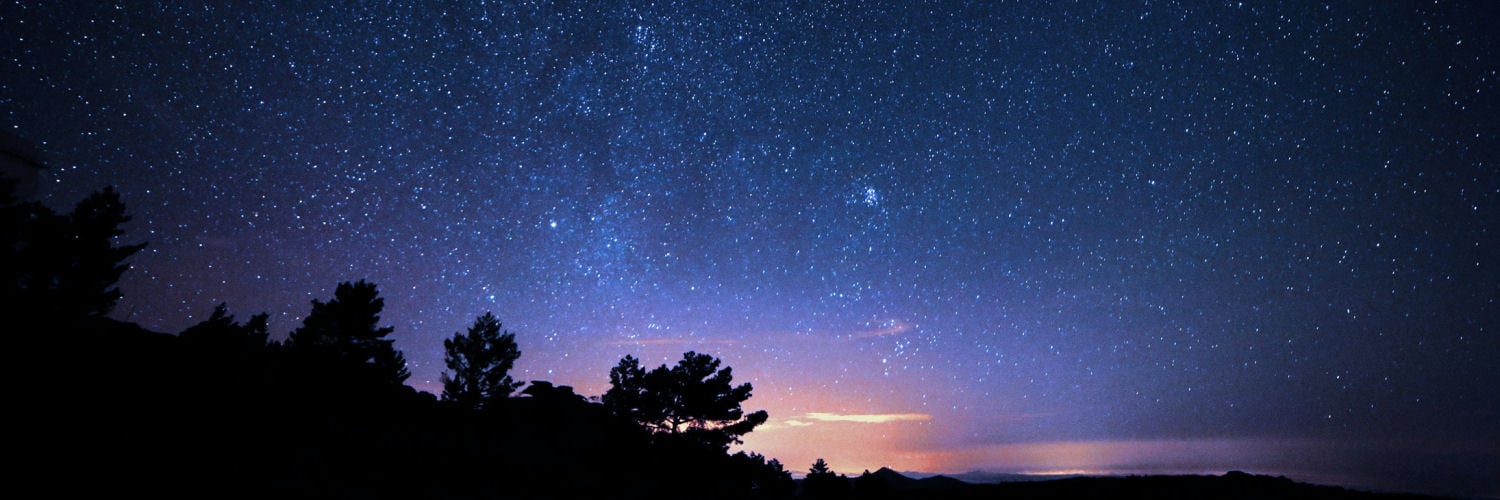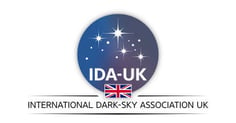Professor Nick Dunn, Director, International Dark-Sky Association UK.
Light and dark are essential to our circadian rhythms, informing our biological clocks of when to be active or rest. They are also vital for many of the other creatures on this planet we share. A lot of natural history focuses on what happened during the daytime. More recently, we have begun to understand just how essential darkness is to the behavioural patterns of flora and fauna. A Natural History GCSE will help more students become custodians of dark skies for the benefit of people, planet and the countless beings we share it with.
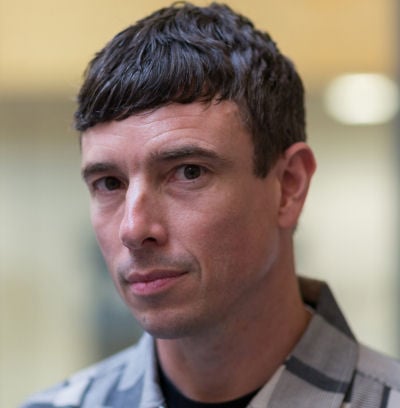
A Hidden Global Challenge
As diurnal creatures, humans are usually active in the daytime. For thousands of years the majority of people went to sleep after the sun went down and became wakeful as it rose in the sky. With the advent of artificial illumination this relationship was profoundly altered. We could increasingly control light and vanquish darkness. With successive developments of artificial lighting, the problem of light pollution has grown.
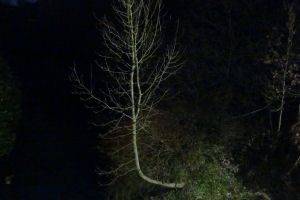 The damage caused by air and water pollution is well known and we know what actions can reduce and even prevent it. However, the widespread presence of light pollution in many places has continued to grow, barely noticed by many of us. Its impacts are increasing without us not understanding the consequences of the brightness we have bought and brought into our homes.
The damage caused by air and water pollution is well known and we know what actions can reduce and even prevent it. However, the widespread presence of light pollution in many places has continued to grow, barely noticed by many of us. Its impacts are increasing without us not understanding the consequences of the brightness we have bought and brought into our homes.
The scale of the global problem of light pollution was first revealed in 2016. Researchers identified that global light pollution grew by 2.2% each year between 2012 and 2016. 83% of people live under a light-polluted sky and in the UK, Europe and North America the figure is even higher at 99%. More recent research conducted in 2021 has shown that there has been an acceleration of light pollution around the world, of 270% globally and up to 400% in some regions.
Impacts on the Natural World
When we close our curtains at nightfall, it is easy to forget that the world outside carries on. Many other species are nocturnal, and they have evolved accordingly within ecosystems that support their behaviours. Disrupting these rhythms comes at our peril.
For birds and insects, they can be disorientated and even become trapped in artificial light. For sea turtles and beetles, using moonlight for navigation becomes impossible. Other animals’ patterns of predation, mating and survival, meanwhile, can also be significantly altered. Despite these serious impacts, we still do not fully understand the cascading effects of all this upon our planet and its ecosystems.
The Wonder of Dark Skies
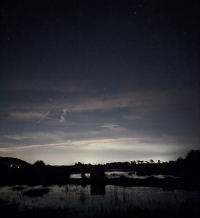 Being able to see a starry night sky can be truly mesmerising. It connects us, across time and space, to our ancestors and reminds us of our place in a vast and astonishing universe. However, 99% of us in the UK now live in areas where light pollution limits our ability to see the stars at night. Why is this a problem? Our relationship with dark skies throughout history has generated a sense of wonder and awe, as well as providing the basis for important cultural meanings and spiritual beliefs. In addition, as our knowledge about the world has grown, dark skies with their stars, moons, and planets have become crucial elements of our understanding of the universe and its role in our origins. By providing the basis for astronomy, dark skies have also offered a rich and ongoing inspiration for scientific discovery and creative interpretations.
Being able to see a starry night sky can be truly mesmerising. It connects us, across time and space, to our ancestors and reminds us of our place in a vast and astonishing universe. However, 99% of us in the UK now live in areas where light pollution limits our ability to see the stars at night. Why is this a problem? Our relationship with dark skies throughout history has generated a sense of wonder and awe, as well as providing the basis for important cultural meanings and spiritual beliefs. In addition, as our knowledge about the world has grown, dark skies with their stars, moons, and planets have become crucial elements of our understanding of the universe and its role in our origins. By providing the basis for astronomy, dark skies have also offered a rich and ongoing inspiration for scientific discovery and creative interpretations.
Urbanisation has played a major part in this rise in light pollution. The work I do with various communities and groups across the UK includes raising awareness of key issues concerning urban places and their impact on dark skies. This includes leading collective night walks in cities so that people can have positive experiences with places after dark, gain insights into nocturnal urban nature, and understand why dark skies are so important.
What We Can Do
We know what needs to be done. The International Dark-Sky Association set out key principles for responsible outdoor lighting, so why don’t we do it? Well, in theory it is almost as simple as flicking a switch, changing a bulb or fitting. But in practice, our relationship with light and dark is much more complicated.
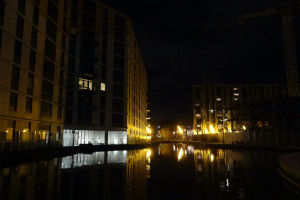 This is one of the many reasons why the GCSE in Natural History is so important. In relation to dark skies, reducing light pollution and its impact on our planet then there are two major ways it will provide students with knowledge and skills to tackle such challenges. Firstly, many of us do not know it is an issue and we need to get the information out there. Secondly, we are not sure what to do about it and this is where education plays a key part.
This is one of the many reasons why the GCSE in Natural History is so important. In relation to dark skies, reducing light pollution and its impact on our planet then there are two major ways it will provide students with knowledge and skills to tackle such challenges. Firstly, many of us do not know it is an issue and we need to get the information out there. Secondly, we are not sure what to do about it and this is where education plays a key part.
We need to do more to protect our environment and this is just as important at night as during the day. For years we have allowed light pollution to go unchecked. A GCSE in Natural History could enable us to teach generations the importance of light and dark for the natural world but also ensure that we protect our dark skies for the benefit of people, planet and the countless beings we share it with.
Professor Nick Dunn
Nick Dunn is Executive Director of Imagination, the design-led research lab at Lancaster University, where he is also Professor of Urban Design. He is the founding Director of the Dark Design Lab, exploring the impacts of nocturnal activity on humans and other species, with the aim of reducing the environmental impact of urban places at night.
Nick is a Director of the International Dark-Sky Association UK, with a focus on on developing a more sustainable relationship between the built environment and the night, as well as exploring ways to promote wider and inclusive participation with dark skies.
Born in Salford, he lives in Manchester with his family.
Keep up to date with our proposed GCSE in Natural History and other Cambridge OCR Natural History news by signing up our email newsletter and updates. You can read back issues of our Natural History newsletter here.
